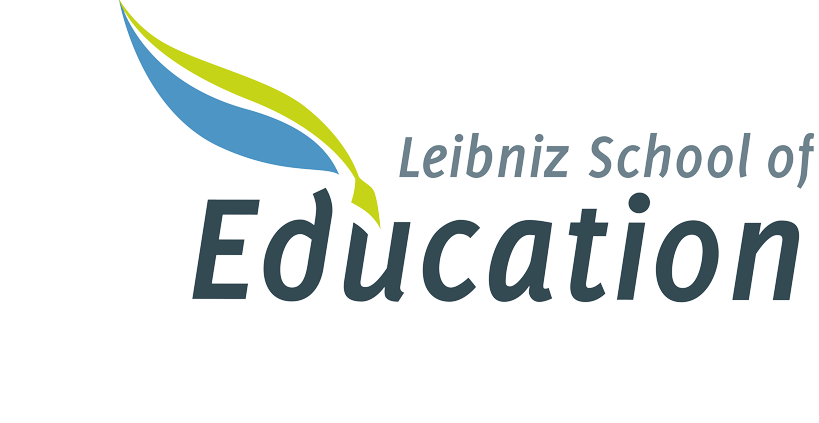Why does the eco-social transformation need educational change?
In its current institutional and pedagogical orientation, the school system is not very sustainable - and not only with regard to issues of waste separation, resource consumption and school meals, or the relevance of the content covered to the challenges of tomorrow's world. The more crucial sustainability issues arise with regard to the values and the views of people and the world that are taught in school as a central place of socialization for young people: The basic cultural patterns of our non-sustainable economic and social system are reflected in the institutionalized learning culture of schools and are internalized, for example, in pressure to perform, competitive thinking, acceleration, segregation, heteronomy, disenfranchisement, subject logic (silo view instead of systemic view), or the standardized assessment (instead of appreciation) of learning progress through grades. The school system - despite all the diversity in the school landscape and the great work of many teachers against this logic - is very effective in conditioning people in the sense of the prevailing social order. Education is not transformative in general, but rather tends to reinforce social norms and power structures. The political mandate for education to contribute to an eco-social transition is thus in tension with the still prevailing basic understanding of school.
"Schools significantly shape attitudes to life. They do this through the hidden curriculum, the lived culture: Is the focus on people and thus on encounter, contact, trust and confidence, or on the material? Is there a spirit of courage, dignity and humanity, or is there a spirit of deficit, standardization and administration? At a time when heart-building, creativity, complexity, and lateral thinking are significant, the secret curriculum in many schools teaches fragmentation, the hierarchy of subjects, lockstep in supposedly homogeneous groups, and evaluation." Margret Rasfeld, Schule im Aufbruch (School on the Move)
„Schulen prägen Einstellungen und Haltungen maßgeblich. Sie tun dies durch den heimlichen Lehrplan, die gelebte Kultur: Steht der Mensch und damit Begegnung, Berührung, Vertrauen und Zutrauen im Mittelpunkt oder der Stoff ? Weht ein Geist von Mut, Würde und Mitmenschlichkeit oder regieren Defizitgeist, Normierung und Verwaltungsgeist? In Zeiten, wo Herzensbildung, Kreativität, Komplexität und Querdenken bedeutsam sind, lehrt der heimliche Lehrplan in vielen
Schulen Zerstückelung, die Hierarchie von Fächern,Gleichschritt in vermeintlich homogenen Gruppen und Bewertung“. Margret Rasfeld, Schule im Aufbruch
Teaching Change? - Change Teaching! Transformative education must therefore begin with educational critique, with an understanding of the instrumental entanglement of the educational system with the larger social system that is in crisis. It does not have to wait for the educational revolution, but can consciously and courageously use free spaces to push boundaries and enable learning-cultural change.
What kind of education do we need at the end of the world as we know it?
ESD as a transformative education that empowers active participation in real change processes and makes them possible in the first place is therefore not a classroom topic, but means a new learning culture:
Interdisciplinary & project-based learning, networking with the extracurricular environment & using different learning places, participation & self-determination, mindfulness & reflection, cooperation & connectedness, responsibility & participation, learning with all senses & the whole body, creativity & joy of experimentation, space for emotionality & search for meaning, ambiguity instead of objectivity, feedback instead of grades, free spaces & fun in learning, learning guides instead of teachers, less is more. In short: reinventing and living school differently.
From the Mind-Behaviour-Gap to Transformative UNLearning?
The often cited gap from knowledge to action is particularly evident in the context of ESD: Problem awareness coupled with the desire for change often does not lead to real behavioral change and action. Change is difficult; individually and collectively internalized patterns act - often against better judgment - as powerful forces of persistence. ESD as transformative learning is therefore about irritating and expanding the internalized patterns of perception, interpretation, thinking, feeling, acting and relating that often keep us from change. Instead of (only) an increase in knowledge, it is therefore primarily about the critical reflection of already acquired knowledge and sometimes also about unlearning acquired world views and behavior patterns, as a critical-emancipatory process, or about a reorientation of self- and world relations in the sense of a world-relationship formation. For this kind of learning, the lived learning culture is much more decisive than subject content. Schools have the potential to become real laboratories of change and to impart the values, attitudes and skills that are conducive to socio-ecological transformation in an increasingly crisis-ridden world: Connectedness to nature, trust, responsibility, public spirit, mindfulness, frugality, creativity, networked thinking, curiosity, experimentation, emotionality, and maturity....


